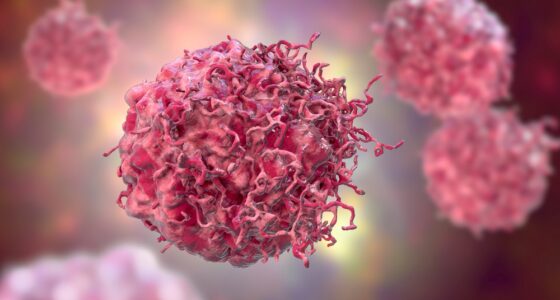Researchers from the Azienda Unità Sanitaria Locale-IRCCS di Reggio Emilia, in Reggio Emilia, Italy, have published the results of a recent study on why some mesothelioma patients don’t respond well to immunotherapy treatment. The scientists studied 89 mesothelioma samples and discovered that in patients whose cells showed deletion of a gene called CDKN2A, their tumors’ microenvironment was left with few immune cells to fight the cancer. This deletion was identified in 4 of every 10 mesothelioma patients, and those with the missing gene had shorter survival times.

Gene Deletion Leads to Mesothelioma Tumors Repelling Immune Activity
Our cells emit chemical signals called chemokines, which attract and direct immune cells, but the researchers found that the microenvironment surrounding mesothelioma tumors with the CDKN2A deletion lacked several different types of immune cells that normally help fight cancer, including natural killer cells, macrophages, and T cells and B cells. They theorized that when CDKN2A was deleted, it interrupted or stopped these chemical signals, leaving the immune cells without direction and leaving the tumors unprotected and free to grow.
In addition to their findings about how CDKN2A deletion impacted mesothelioma tumors’ microenvironment, the scientists found that patients diagnosed with sarcomatoid mesothelioma – the most aggressive form of the rare, asbestos-related disease — were those who most frequently had the CDKN2A deletion. Using a technology called spatial transcripomics, the researchers created maps detailing where immune cells were located in the tumors. They discovered that sarcomatoid tumors with the deletion had almost no helpful immune cells anywhere near the cancer, while the immune cells called macrophages were reduced in all mesothelioma tumor types in which CDKN2A was missing.
Discovery May Lead to Better Use of Mesothelioma Treatments
While immune checkpoint inhibitors have helped some mesothelioma patients live longer, not every patient’s immune system has been boosted by the treatment. The discovery of CDKN2A deletion’s impact on tumor microenvironments may help physicians identify or predict which patients will get the most benefit from the innovative protocol. The researchers believe that testing for CDKN2A deletion, in conjunction with knowing the patient’s tumor type, will help doctors make better decisions about which patients should receive immune-boosting treatments.
If you or someone you love has been diagnosed with mesothelioma, the best hope for longer survival comes from continuing research. For information on other resources available to you, contact the Patient Advocates at Mesothelioma.net today at 1-800-692-8608.
